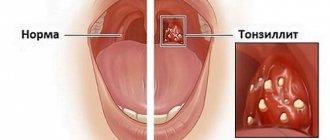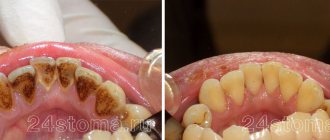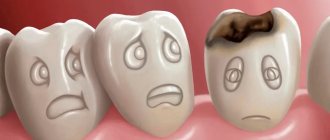The sour taste in the mouth is disturbing and unnerving. Unpleasant taste sensations in the mouth outside of food consumption are a sign of a large number of diseases.
There is such a gastronomic concept as aftertaste. And it is not always pleasant. This is a reaction to stimuli from the taste buds located on the tongue and the inner surface of the cheeks.
A sour taste in the mouth can be the result of using lemon, vinegar, and various marinades for cooking. During the period of not eating food, no foreign tastes should be felt in the oral cavity. If the aftertaste does not go away, or any additional symptoms appear, then the cause of this phenomenon should be identified.
Causes of discomfort
The taste in the mouth tells about the health of the whole body.
The reasons for the appearance of acid in the oral cavity can be both diseases of various organs and a joyful event - the onset of pregnancy.
Possible diseases that cause an unpleasant aftertaste:
- increased acidity of gastric juice;
- excess production of hydrochloric acid;
- disturbances in the gastrointestinal tract - pancreas, reflux disease;
- periodontal diseases;
- the presence of crowns or fillings made of different metals in the oral cavity - such combinations form a galvanic couple and a physical and chemical reaction of electrolysis takes place in the oral cavity;
- electrolyte imbalance;
- dehydration of the body;
- taking medications;
- impaired bile formation and liver pathology - as a result of eating fatty and heavy foods; pregnancy in the middle and late stages - the growing uterus compresses the stomach and hydrochloric acid refluxes into the esophagus and oral cavity.
All these processes are accompanied by additional symptoms. Therefore, if you regularly experience an unpleasant sensation in the oral cavity, you should undergo a comprehensive examination.
If at the same time there is pain in the epigastrium, nausea, and stool disorder, then you need to urgently contact a medical institution.
The following video will familiarize you with the causes of sour taste in the mouth:
Causes of taste in mouth
Throat diseases may be accompanied by an unpleasant taste in the mouth.
Photo: imagepointfr / Depositphotos Reasons for an unusual taste in the mouth may include:
- diseases of the teeth, gums and oral mucosa;
- pathologies of the ENT organs (nasopharynx, paranasal sinuses);
- unbalanced diet;
- diseases of the stomach and gall bladder;
- hormonal and neurological disorders;
- intoxication with chemicals.
In women, a change in taste can be a sign of pregnancy; in men, it is rarely associated with physiological conditions and hormonal surges. At the same time, diseases of the nervous, respiratory systems, or even cancer can lead to the development of symptoms. Doctors will help you understand the cause of the symptom: in this case, an integrated approach to examination and treatment is necessary.
Causes of blood taste in mouth
The characteristic taste of blood most often indicates increased bleeding of the gums. Also, such a taste can be a symptom of diseases of the nasopharynx and paranasal sinuses (sinusitis, frontal sinusitis, sinusitis).
Other reasons for feeling blood in the mouth:
- diseases of the bronchi and lungs (acute bronchitis, pneumonia, pleurisy, lung abscess);
- disorders of the hematopoietic system;
- diabetes;
- renal failure;
- oncological diseases;
- internal bleeding.
In addition, the sensation of blood in the mouth may be associated with diseases of the gastrointestinal tract (GIT):
- esophagitis;
- gastroesophageal reflux disease (GERD);
- chronic gastritis;
- liver pathologies.
The taste of blood may occur due to biting the mucous membranes of the cheeks or tongue. In this case, it is enough to actively rinse your mouth with antiseptic solutions, for example, chlorhexidine, throughout the day.
Causes of bitter taste in mouth
An unpleasant bitter taste may appear in the morning after waking up or several hours after eating.
Common causes of a bitter taste in the mouth:
- Pathologies of the liver and gallbladder (hepatitis, cirrhosis, cholecystitis, cholelithiasis, gallbladder kinks), stagnation of bile - at a certain point, its excess leaves through the bile ducts, enters the stomach and penetrates the esophagus.
- Indigestion. Slowing intestinal motility leads to retention of undigested food in the gastrointestinal tract. This leads to fermentation processes and the appearance of a characteristic taste in the mouth.
- Neurological pathologies (Alzheimer's disease, consequences of traumatic brain injury).
- Pregnancy.
Symptoms can also be caused by hormonal disorders, parasitic infections, or taking certain medications (antibiotics, antiallergic drugs, chemotherapy drugs).
At home you can get rid of the symptom with:
- eating small meals frequently;
- compliance with the water regime;
- rinse your mouth with a spoon of baking soda.
However, after eating, the sensations usually disappear for some time.
Causes of a metallic taste in the mouth
This symptom is often confused with the taste of blood, but other conditions can cause a strong sensation of “metal” in the mouth:
- chemical poisoning with heavy metals (mercury, copper, lead, arsenic);
- taking certain medications (iron supplements for anemia, antiparasitic drugs, pills to lower blood pressure);
- galvanosis - disruption of electrochemical processes in the oral cavity due to metal prostheses, implants, piercings;
- “burning mouth syndrome”, insufficient salivation and dry mouth;
- impaired kidney function (excessive accumulation of metabolic products);
- endocrine diseases (diabetes mellitus, Fig. 1);
- period of hormonal changes (pregnancy, menopause).
The symptom can also appear due to everyday reasons:
- insufficient purification of drinking water;
- storing food in aluminum containers.
To relieve the metallic taste, you can try rinsing your mouth with salt and water, eating foods with intense flavors, and adding more natural spices. It is also important to temporarily switch to cutlery made from non-metallic materials.
Figure 1: A metallic taste in the mouth may indicate a serious medical condition. Source: Verywell Health
Causes of sweet taste in mouth
A sweetish taste that is not associated with an excess of desserts in the diet may be a sign of:
- dental pathologies;
- diabetes mellitus;
- pregnancy;
- problems with the thyroid gland;
- neurological pathologies (stroke, epilepsy);
- GERD (gastroesophageal reflux disease);
- bacterial infections - some microorganisms (streptococci, staphylococci) produce enzymes with a specific taste;
- pesticide poisoning.
You can try to get rid of this feeling by giving up sweets. Also, in the fight against taste, it is necessary to avoid smoking, drink enough fluids throughout the day and carefully observe the rules of oral hygiene.
Causes of acetone taste in the mouth
The reason for this taste and smell of “nail polish remover” from the mouth is most often the excessive content of special substances of fat metabolism - ketone bodies.
As a rule, the symptom appears with diabetes mellitus, but can also accompany other conditions:
- following a keto diet (Fig. 2);
- fasting or drinking too much fluid;
- kidney damage (glomerulonephritis, renal failure);
- excessive alcohol consumption;
- liver pathologies.
Figure 2: Following a keto diet may cause your breath to smell like acetone.
Source: Sewcream / Depositphotos You can get rid of the characteristic smell of acetone using natural breath fresheners, using dental floss and drinking water with lemon.
Important! If you experience a taste of acetone in your mouth, you should reconsider your diet and abandon alternative foods that do not contain sugar - a carbohydrate-free diet often leads to ketoacidosis.
Acid and sweet
Acidity in the mouth is not a very pleasant sensation
A pure taste sensation is rare. Since there are receptors in the oral cavity for determining and analyzing various combinations.
In a pathological process, acid may predominate, but in most cases other flavors are also present. This provides additional information to find the cause of the unpleasant sensation.
Sweet and sour taste is caused by the following conditions:
- increased blood glucose levels due to stress, physical exertion;
- state of depression;
- excessive consumption of sweets;
- disruption of the gastrointestinal tract;
- liver pathologies;
- toxic effects of pesticides, gaseous chemicals;
- smoking cessation period;
- diabetes with a slight increase in blood glucose levels, a latent form of the disease;
- pathologies of the maxillofacial system, which are accompanied by purulent processes - gum disease, caries, periostitis, gumboils and abscesses.
Before contacting a doctor, you should analyze the factors that contribute to the appearance of a sour taste in the mouth.
Treatment methods in Medscan
The choice of treatment methods depends on the disease that caused hemoptysis and the stage of its development. For malignant neoplasms in the lungs, the following are prescribed:
- early resection;
- chemotherapy;
- radiation therapy;
- immunotherapy;
- targeted therapy;
- stereotactic radiotherapy.
In case of massive bleeding, Medscan specialists perform embolization of the bronchial artery. This is a minimally invasive method that involves blocking a bleeding vessel. It allows you to stop blood loss in 90% of cases. If there is no effect, emergency surgery is performed.
Acid and bitterness
A bitter taste indicates a disruption of the liver and bile ducts. It may appear occasionally, but may bother you regularly.
Possible causes of a bitter-sour aftertaste:
- significant errors in nutrition - the liver is simply not able to cope with so many fatty, heavy, spicy foods, alcoholic drinks;
- alcoholism - the liver suffers first;
- treatment with aggressive drugs - a long course of antibiotics, antihistamines, and other medications;
- those who like to smoke a cigarette at night.
If we consider bitterness in the oral cavity in terms of the intended diagnosis, then most often it is cholecystopancreatitis, erosion of the mucous membranes of the stomach and intestines, gastritis.
When to see a doctor?
Eliminating the cause of the development of a symptom most often completely eliminates all its manifestations, so it is important to consult a doctor in a timely manner (Table 1).
Table 1. Taste in the mouth: when should you seek medical help?
| Type of taste in the mouth | Reasons to see a doctor |
| Taste Blood | If the symptom is not associated with accidental damage to the oral mucosa, you should begin the examination with a trip to the dentist. If necessary, the specialist will refer you to other doctors for consultation. |
| Metallic taste | You need to undergo examination in the toxicology department if the taste appears after poisoning with chemical agents. It is also important to consult a doctor if you suspect bleeding of unknown location or galvanism. |
| Bitter taste | If bitterness in the mouth persists for several days, and is also accompanied by the appearance of plaque, nausea or vomiting, you should make an appointment with a gastroenterologist. This is probably how the body “signals” about disturbances in the gastrointestinal tract. |
| Bitter taste | If your taste changes regularly without connection with the amount of sweets in your diet, you should consult a therapist or endocrinologist. |
| Taste of acetone | You should definitely see an endocrinologist if the symptom occurs due to diabetes. When following a low-carbohydrate diet, it is also important to choose a new diet from a nutritionist. |
Metal
The reason may be unhealthy teeth or gums.
A metallic taste in the mouth can be caused by metal crowns or fragments of dentures. In this case, you should discuss with your dentist the issue of replacing them. When making a diagnosis, exclude:
- diseases of the periodontium and maxillofacial system with obvious signs of a purulent process;
- bleeding from the gums;
- poisoning with salts of heavy metals - such taste sensations are caused by mercury, zinc, arsenic, copper;
- diabetes mellitus in the stage of decompensation with a slight change in blood sugar levels;
- Iron-deficiency anemia;
- chronic bleeding due to stomach ulcers;
- hormonal disorders;
- taking certain medications. The appearance of such sensations is facilitated by drugs from the NSAID group and anticonvulsants. When the drug is discontinued, the metallic taste disappears on its own.
Diagnostic methods in Medscan
Diagnosis for hemoptysis includes:
- Taking anamnesis - it is important to establish the history of the symptom and the presence of chronic diseases that could cause it.
- Physical examination - allows you to detect accompanying symptoms.
- Laboratory tests - Abnormalities in blood and urine values may be clinically significant.
- Computed tomography - in Medscan CT allows you to identify inflammatory processes, pulmonary neoplasms, determine their nature, stage of development and the presence of metastases.
- Bronchoscopy - this method makes it possible to assess the condition of the bronchi and take a sample of lung tissue for histological examination. Based on it, the doctor judges the presence of a tumor, its benignity or malignancy.
Acid and milk
Sour taste is common during pregnancy
This is a rare sensation, since in normal conditions it is caused only by the consumption of fermented milk products. When such an aftertaste appears, one can assume:
- chronic stress;
- infection with intestinal parasites;
- various diseases of the gastrointestinal tract.
Outside of food intake, a sour milk taste in the mouth appears along with additional symptoms. This is a reason to contact a medical institution as soon as possible.
Treatment
Help before diagnosis
Many patients feel relief after rinsing their mouth with water and a small amount of lemon juice or a weak solution of soda. It is important to maintain oral hygiene: brush your teeth thoroughly 2 times a day, rinse your mouth with water after each meal, and use dental floss if necessary. In order not to suffer from bitterness in the morning, you should refrain from fatty foods and smoked foods at dinner.
Pregnant women are advised to eat often, in small portions, so as not to overload the gastrointestinal tract. After eating, you should not take a horizontal position or engage in physical labor. If an unpleasant taste in the mouth is accompanied by dyspeptic disorders, pain or a progressive deterioration of the general condition, it is important to consult a doctor in time to determine why the taste occurs in the mouth.
Conservative therapy
A specific taste occurs in many diseases, so only the main directions of therapy can be identified, and the selection of an individual set of therapeutic measures is carried out by a specialist. When caries is detected, treatment by a dentist is indicated: usually, after the elimination of chronic foci of infection, the unpleasant taste disappears. Most often used in therapeutic regimens:
- Antiseptics
. Regular rinsing of the oral cavity with a solution of chlorhexidine and its analogues ensures moisturizing and cleansing of the mucous membrane, and prevents the proliferation of pathogenic microorganisms. For stomatitis with pain, solutions of local anesthetics are used. - Antacids
. If the symptom is due to hyperacid conditions, modern non-absorbable drugs that quickly reduce acidity are recommended. A course of treatment with antisecretory agents is often required to achieve a lasting effect and healing of mucosal defects. - Choleretic drugs
. In case of biliary pathology, the composition of bile is improved and its release into the duodenum is stimulated, due to which the bitterness disappears. The drugs can be combined with hepatoprotectors to protect the liver from the effects of bile acids. - Antidotes
. Heavy metal poisoning is an indication for the prescription of specific complexones that bind and remove toxic substances from the blood. To speed up detoxification, large volumes of crystalloid solutions are administered intravenously.
Sour taste in pregnant women
The appearance of such an unpleasant aftertaste in a pregnant woman is facilitated by 2 metabolic processes associated with the process of bearing offspring.
You can thank for the acid in your mouth:
- The hormone progesterone. This is a necessary condition for pregnancy. This substance helps relax muscle tissue, preventing the development of fetal rejection. Ideally, it should act only on the muscles of the uterus. But in reality, all smooth muscles relax, including the muscles of the stomach and esophagus.
- The growing uterus puts pressure on the hollow organs. There is a reflux of stomach contents into the esophagus and oral cavity. The result is heartburn and an acidic taste in the mouth.
In this case, taking an antacid is indicated at the discretion of the gynecologist. But first you should exclude diseases of the gastrointestinal tract. The drug of choice can be Gaviscon in any convenient form.
Diagnostics
If an atypical taste is occasionally or constantly felt in the mouth, consultation with a gastroenterologist is required. The symptom is caused by various reasons, therefore, before laboratory and instrumental examination, you should carefully collect anamnesis and accompanying complaints. The greatest diagnostic value is:
- Blood tests
. A standard blood chemistry test reveals the accumulation of ammonia and ketone bodies, which often cause an unpleasant taste in the mouth. Clinical analysis can detect a decrease in hemoglobin, changes in the size and shape of red blood cells, which is characteristic of anemia. If necessary, toxicological analysis is carried out. - Hormonal profile
. If patients complain of a sweetish sensation in the mouth, fasting sugar levels are measured. The results of an oral glucose tolerance test are indicative. To clarify the form of diabetes, the concentration of insulin and C-peptide is taken into account. If glucose levels are normal, it is recommended to determine the level of thyroid hormones. - ENT examination
. During the study, the condition of the mouth, throat, and nasal passages is examined. Frequent findings are signs of chronic inflammation, purulent or whitish deposits on the mucous membrane. Bloody crusts are sometimes found in the nose. If carious teeth or bleeding gums are detected, a person is referred to a dentist. - Endoscopy
. The causes of unusual taste sensations, which are combined with abdominal pain and painful heartburn, are diagnosed using FGDS. During endoscopy, inflammatory and destructive processes in the gastric mucosa, insufficiency of the cardiac sphincter with the flow of acidic contents into the esophagus are visualized. - X-ray imaging
. To exclude ENT causes of a persistent unpleasant taste in the mouth, an x-ray of the paranasal sinuses is performed. Excretory urography is indicated for patients with swelling, lower back pain and other signs of kidney damage. To study the condition of the intestines, a barium passage x-ray is prescribed. - Additional methods
. In women, levels of sex hormones must be examined; in young patients, the level of human chorionic gonadotropin is additionally assessed to confirm or exclude pregnancy. If lung cancer is suspected, especially in men with a long history of smoking, bronchoscopy with collection of material for cytomorphological analysis is required.
If you have an unpleasant taste in your mouth, it is important to maintain oral hygiene
Bad breath: physiology or disease?
Bad breath
in medical language it is called
halitosis
. There are physiological and pathological halitosis. Bad breath often appears in the morning. During the night, bacteria and their metabolic products accumulate in the mouth, which causes a bad odor. This type of halitosis is physiological and can be eliminated by simply brushing your teeth. Physiological halitosis also includes odor caused by eating a number of foods, such as garlic, onions, cabbage. This smell will disappear on its own as soon as the substances that caused it are eliminated from the body. But it also happens that an unpleasant odor is not eliminated using hygiene procedures; in this case, most likely, it is of a pathological nature.
Bad breath: what to do?
The fight against bad breath begins with careful adherence to good oral hygiene. If the source of the odor is bacterial activity, proper brushing of your teeth will help. Teeth should be brushed not only from the outside, but also from the inside, and also treat the chewing surface of the teeth. The brush angle should be 45°. Using dental floss, hard-to-reach areas between teeth are treated. If your teeth are in poor condition, simply brushing your teeth will not solve the problem. You will need to visit a dentist and remove tartar, and if your teeth have caries, cure them. It is recommended to visit the dentist at least once or twice a year.
It is also necessary to combat dryness of the oral mucosa. If you feel dry mouth, take a few sips of water and rinse your mouth. However, it should be remembered that frequent dry mouth can be a symptom of serious diseases. However, like the unpleasant smell itself. Therefore, if you have persistent bad breath, you should definitely see a doctor and undergo an examination.











